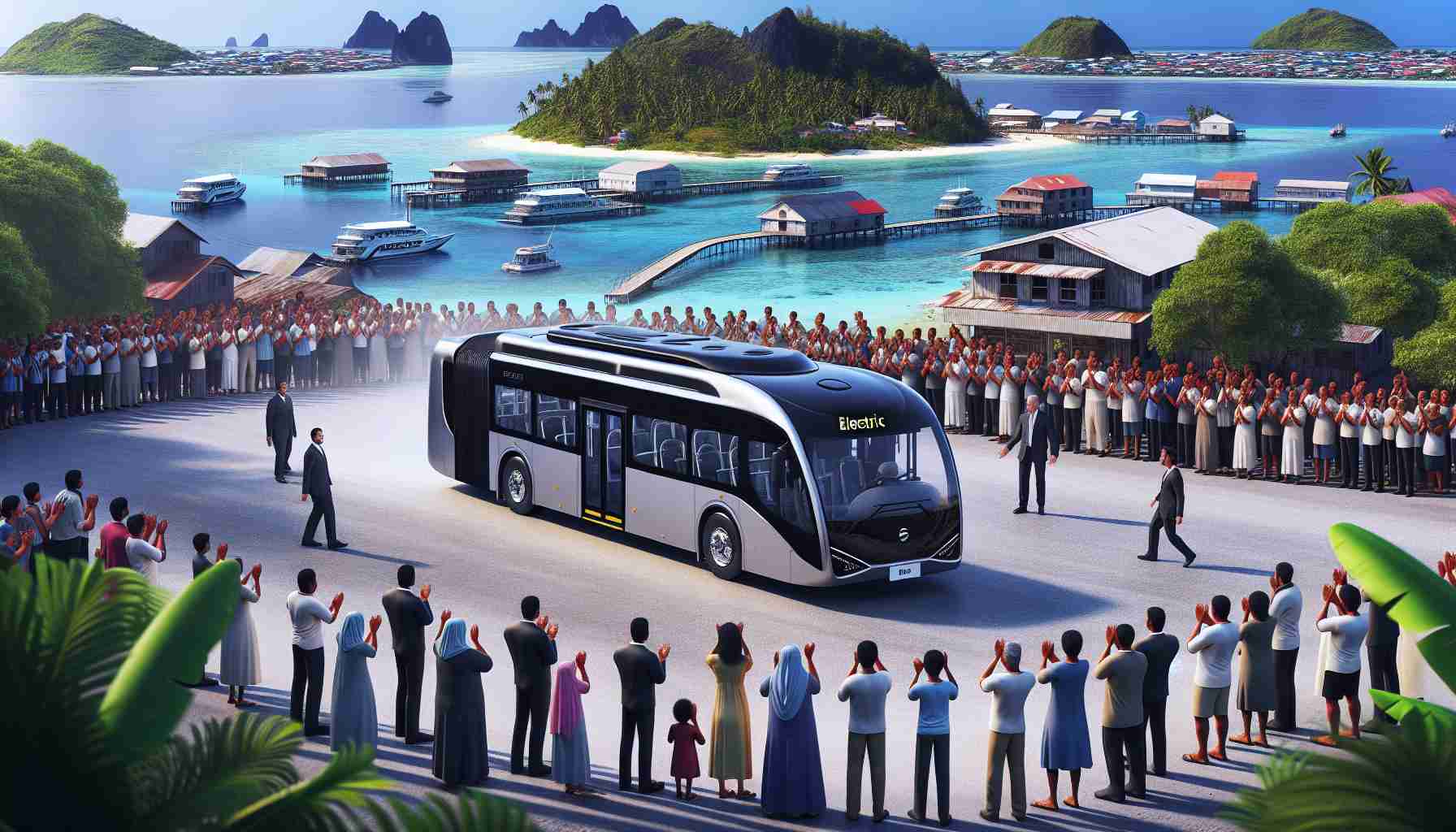
Nauru’s Bold Move Towards Sustainable Energy
Nauru has embarked on an exciting journey toward a sustainable future with the introduction of its inaugural electric bus in the Yaren District. This significant milestone demonstrates the government’s dedication to minimizing emissions and embracing environmentally friendly energy alternatives.
This initiative is part of Nauru’s comprehensive strategy to lessen dependence on imported fossil fuels and enhance energy efficiency, aligning with its National Energy Roadmap objectives. The launch event unified key players, including government officials and representatives from the United Nations Development Programme (UNDP), underscoring the collective commitment to energy sustainability.
Minister Asterio Appi expressed his pride in launching Nauru’s first electric bus and charging station, emphasizing its role in promoting cleaner public transportation as a step toward a resilient and sustainable future.
Kevin Petrini from the UNDP acknowledged the project’s importance, noting that the integration of the electric bus into the SMARTEN initiative is pivotal for encouraging low-carbon development and renewable energy adoption.
The SMARTEN project, funded by the Global Environment Facility, aims to enhance the island’s energy resilience through renewable technologies and increased efficiency. Assistant Secretary Anadella Edward remarked that this launch is merely the beginning, with plans for further clean energy advancements on the horizon.
With the introduction of the e-bus, Nauru is poised to inspire communities and embrace a progressive path towards a sustainable tomorrow.
Nauru Accelerates Towards a Green Future with Electric Bus Initiative
Nauru, a small island nation in the Pacific, is taking concrete steps towards sustainability through its recent launch of the first electric bus in the Yaren District. This initiative not only marks a pivotal moment in the country’s public transportation system but is also a significant stride towards reducing carbon emissions and reliance on imported fossil fuels.
Overview of Nauru’s Sustainable Initiative
This launch is part of a broader strategy aligned with Nauru’s National Energy Roadmap, which seeks to increase energy efficiency and promote renewable energy sources. The event brought together government officials and key stakeholders, including representatives from the United Nations Development Programme (UNDP), highlighting a collaborative effort to achieve sustainable energy goals.
Features of the Electric Bus and Charging Station
The newly deployed electric bus features state-of-the-art technology aimed at enhancing public transport comfort and efficiency. Additionally, the accompanying electric bus charging station will facilitate the operational needs of this eco-friendly vehicle, ensuring a reliable service for the community.
Pros and Cons of the Electric Bus Initiative
Pros:
– Reduction in Emissions: Transitioning to electric buses will significantly reduce greenhouse gas emissions compared to traditional fossil fuel-powered vehicles.
– Energy Independence: By investing in electric transportation, Nauru aims to lessen its dependence on imported fuels, fostering energy security.
– Economic Opportunities: Implementation of green technologies may create new job opportunities in the maintenance and operation of electric vehicles.
Cons:
– Initial Investment Costs: The upfront costs associated with electric buses and their infrastructure may be a hurdle for the government.
– Infrastructure Needs: Expanding charging infrastructure is essential for the sustainability of electric public transport over time.
– Battery Disposal Concerns: Long-term management of battery waste is crucial to prevent environmental degradation.
Insights on Future Initiatives
Minister Asterio Appi emphasized that the introduction of the electric bus is only the beginning of Nauru’s journey towards a cleaner transportation network. Plans for additional electric vehicles and enhancements in renewable energy technologies are already underway, signaling a commitment to sustainable development.
The Role of SMARTEN Project
The SMARTEN (Strengthening Adaptation and Resilience in Nauru) project, funded by the Global Environment Facility, plays a vital role in this initiative. It focuses on improving the island’s energy resilience through innovative renewable technologies and promoting low-carbon development pathways. Kevin Petrini from the UNDP highlighted the importance of this integration for fostering a sustainable energy landscape.
Pricing and Financial Aspects
While specific pricing details for the electric bus and its operational costs have not been disclosed, government officials indicate that the long-term savings from reduced fuel costs and potential environmental benefits justify the investment.
Trends and Predictions
As other nations globally face similar challenges, Nauru’s aggressive approach to adopting sustainable energy may inspire similar initiatives in comparable small island developing states (SIDS). This move could catalyze further advancements and investments in renewable energy solutions, marking a significant trend towards greener public transport systems.
Conclusion
With the launch of its first electric bus, Nauru stands at the forefront of sustainable energy initiatives in the Pacific. This transition not only sets a precedent for future projects but also positions Nauru as a leader in the move towards environmentally sound public transportation practices. For more information on similar initiatives and the transition toward sustainable energy, visit the [United Nations Development Programme](https://www.undp.org).



